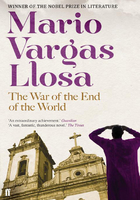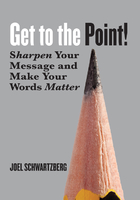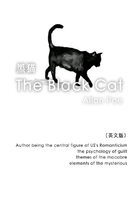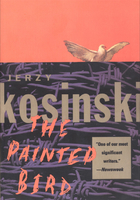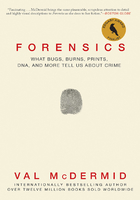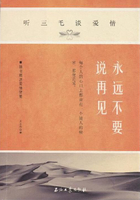TO JUDSON WELLIVER,
first White House speechwriter
(Harding and Coolidge administrations), and members of the Judson Welliver Society, the association of former White House speechwriters
A Curator at the National Archives in Washington called one day and invited me over to take a look at a new exhibit before it opened. The archivist said there was an item in its "American Originals" presentation that would surely intrigue me.
So I went. There in the rotunda was the usual stuff: an early copy of the Magna Carta and one of the few copies of the Emancipation Proclamation in Lincoln's handwriting. Over on the side were some interesting curiosities: the canceled check for $7.2 million that purchased Alaska from Russia, along with John Wayne's World War II application to go to work for the OSS, our nascent spy agency.
But what grabbed my attention was a two-page typescript displayed in a glass case next to Lincoln's work. It was a memo from me when I was a White House speechwriter, dated July 18, 1969, when everyone was excited about our incipient landing on the moon. The subject line read "In the Event of Moon Disaster." It included a draft of a short speech that President Nixon would have made if the astronauts of Apollo XI were stranded on the moon and had to "close down communication" lest the peoples of the world would have to agonize with them as they starved to death. The somber speech was never delivered, of course—the moon shot initiated in the Kennedy era was a triumph for the United States and "all mankind"—but it had been filed away, forgotten for three decades until a reporter found it while digging around in the archives. The document has become one of the odd artifacts of that historic day, a sobering reminder of the risk the crew ran (and tragedy did strike a space shuttle crew years later). I include it at the end of the updated edition of this anthology in a new section of "undelivered speeches," along with quite different addresses drafted by or for Presidents Kennedy and Clinton that they did not use.
What struck me, peering down through the unbreakable glass into the case containing my treasured curiosity, was this question: When did a speech become a speech—when it was drafted or when it was given? The answer came just as quickly: Words on a page do not a speech make. Nor is a script a play, nor a screenplay a movie. What makes a draft speech a real speech is the speaking of it; but without that articulation, without the strong presence of the deliverer, without the audience to be aroused or moved, all you have is a polemic on a page. A speech is an event.
I looked to my right, at the larger glass case with the guard standing next to it. The document in it was no speech, either, and was not even much of an inspirational piece of writing; one eminent historian said its words had "all the moral fervor of a bill of lading." Lincoln, the greatest presidential speechwriter of all, chose to put his proclamation in sere, legalistic language because no fanfare was needed for such a monumental change of national direction. The stunning extension of human freedom, not to mention the largest seizure of property in history, was thunderbolt enough.
What if there had been television and streaming media and the Internet back in 1863? The wartime president could not have avoided presenting his unprecedented executive act of emancipation in a speech to the divided nation. If you are interested in speechwriting as an art form or in speech viewing as an actively involved member of an audience, take a crack at drafting such a speech. Your purpose is to rally your war-weary North to a greater cause than Union, which is wearing thin, and to stop antislavery Europe from trading with the South; at the same time, you do not want to trigger a bloody slave rebellion or lose border states or preclude peace negotiations with Confederate leaders. Your policy decision, after much private agonizing, had been made: to free the slaves in all states in rebellion, but not to free those in the slaveholding border states that did not secede. Now explain that in a speech to the nation in a way that advances all your morale-building, military, diplomatic, and moral goals.
Standing in that rotunda with its incongruous juxtaposition of writings on display, and turning that imaginary assignment over in my mind, this recovered speechwriter confronted the larger question, one of special interest to the reader hefting this volume: What is the single most important element in turning a speech into a memorable event? Is a "great" speech created by the dramatic occasion, or the persuasive style of the orator, or the eloquence of the words themselves?
Here's the answer:
The astute reader will note that the previous declarative sentence ends with a colon. The purpose of a colon is to signal a dramatic pause and point to what's coming next. And yet, nothing but this interruption follows "Here's the answer:" (it is not because I do not have an answer).
The even more astute reader will readily grasp the writerly manipulation under way. This is the preface to the third edition of an anthology of great speeches. Its primary purpose, like that of the book it introduces, is to instruct and inspire, largely by example, those interested in speechmaking, speechwriting, and speech listening. (A secondary purpose is to provide a doorstop-sized reference for students of history and politics who want to examine primary sources beyond quotation-book snippets, which is probably why it has a wider readership than any of my language books or novels.)
The best way to begin an informal speech that does not deal with a crisis or tragedy is to tell a little story. If the anecdote is amusing, fine—that wakes up or relaxes an audience, whichever is required—but most attempts at humor from the lectern by noncomedians lay an egg. More reliable is a story about something poignant or instructive that has happened to you—neither funny nor tragic—and that connects to the theme of your speech. It gets personal without "getting personal."
In these introductory words, the visit to the Archives about the moon-shot draft speech was such an opening. They led quickly to the point about a speech being an event rather than a script and set up the imaginary Lincoln speech proclaiming emancipation. From there it was an easy transition to internal dialogue asking about the relative importance of occasion, presentation, and content. If this were a speech (and it's not—I used that device in the intro to the first edition, which follows this preface) we would be six or seven minutes along the way, and you'd want the answer to the relative-importance question.
Now here's my answer: "Great" speeches are made on occasions of emotional turmoil. The occasion can be a political victory or concession speech, a eulogy of a beloved figure, a summation at a murder trial or political show trial; it can be a prime minister's rallying a nation threatened by invasion or a president's consoling a nation after a disaster.
The next most important element in the formation of a speech deemed great is the forum. This can be a joint session of Congress or a national convention, an academic ceremony or a testimonial dinner, a battlefield or a deck of an aircraft carrier, a pulpit or a gallows or a grave. Such moments and such places cry out for momentous addresses and imbue efforts toward them with solemnity or at least seriousness. The newsworthy setting adds respect for the words just as the tradition-filled hall's dramatic echoes lend gravitas to the speaker's message.
Of course, content and its phrasing take advantage of occasion and forum to put a speech over the top in the making of history or the creation of a reputation. There is a caveat: Such a spotlight and its demanding audience call all the more attention to a weak speech or a bumbling speaker. New York Mayor John Lindsay strode on the national scene in a speech to Washington's Gridiron Club, where the tradition is for gentle, often self-mocking humor, followed by a short, serious conclusion; he told a series of off-color jokes and was no longer taken seriously on the national scene. Arkansas Governor Bill Clinton gave a tedious speech to bored Democratic conventioneers in 1988 and the only applause came when he said, "And in conclusion." (He was later taken seriously; his uplifting speech to Memphis ministers is collected here.)
But the moment and the milieu sharply focus the mind. Winston Churchill's speech after the military disaster that led to the evacuation of the British Army from Europe at Dunkirk—which he skillfully characterized as "a miracle of deliverance" even as he had to acknowledge a military disaster—is a great speech because it combined the elements of occasion, forum, and delivery of content. Not only was it an elegantly phrased explanation of the defeat culminating in a ringing "we shall fight on the beaches" peroration, not only was the prime minister's deep-throated delivery forcefully defiant in a hushed Parliament, and broadcast to the world, but the overriding reason was the historic occasion: at that moment tyranny was on the verge of victory, and democracy's main weapon was Churchill's rallying voice.
I will return to that tripod theme. But first let me tell you some of what I've discovered about speechifying during the years of gathering up and analyzing these addresses, ancient and modern.
Let me come clean about the possibility of textual error. When it comes to the accuracy of the report of some great speeches, it ain't necessarily so. Did Patrick Henry really deliver the speech in 1775 as you see it here? No written text exists; the inflammatory speech may have been wholly ad-libbed with no notes. Without a contemporaneous newspaper report at hand, we must rely on a biographer's account written forty years afterward. The only evidence that the inflammatory patriot's most famous exhortation is genuine comes from a motto on a flag of the Virginia militia that served under him: "Liberty or Death." I know not what course other anthologists may take, but as for me, I'll take whatever recollected text we have with a grain of salt.
The same applies to Oliver Cromwell's expression of displeasure to the English Parliament, concluding with the ultimate dismissal: "Depart, I say: and let us have done with you. In the name of God—go!" Not until two centuries after Cromwell's death did the historian Thomas Carlyle assemble bits and pieces of what the Lord Protector's contemporaries said he said into a half-quoted, half-narrated account. I include it here as the best approximation of what the regicidal spurner of a crown said that memorable day, but we should not assume—as many histories and quotation books do—the words attributed to him are from a transcript of Cromwell's dispersal of a legislature.
A similar simulation can happen here, and did recently. General George Patton's powerful exhortation, laced with pungent profanity, to American troops before D-Day—so forcefully delivered by the actor George C. Scott in the movie entitled Patton—is used to great effect by motivation gurus in and out of the military. But that was a fine scriptwriter's version of what Patton said just before the Normandy invasion. Other versions of the general's go-get-'em rouser can be found in the published Patton Papers and on the Internet. Evidently the controversial leader gave roughly the same speech several times to different groups of soldiers, and some took notes. No recording was made. I laid out all the accounts I could find, spoke to the editor of the Patton Papers, and, conjuring the ghost of Carlyle, assembled a good approximation of long excerpts from the salty, savage, inspiring pep talk by "Old Blood and Guts." But don't take a patchwork quilt for a blanket.
Now to a more general review: What about the technique of speechwriting and speechmaking—how is it changing, and why? (And in today's speeches and introductions, are we overusing the technique of internal dialogue?)
Major addresses—talks running forty minutes or more, laying out a comprehensive point of view, report, program, critique, case, or vision—have in recent years been going out of style. Happily for those who like a full meal of oratory, as well as for those who like the sound of their own voices, we still have exceptions to this squeezing down of oratory at quadrennial national political conventions and frequently in the U.S. Senate. But from commencement ceremonies to eulogies, from lectures to sermons, brevity is now considered the soul of wisdom as much as wit.
Speech doctors are performing major surgery. Sentences are shortening. (By a lot.) On television, time is money, and you'd better get your point across in a hurry or the channel-cruising viewer with the clicker at the ready will wipe your face from the screen. On the stump, the rip-snorting harangues of yesteryear are being replaced by instant coffee-klatches in primary season and air-kissing "drop-bys" at October fund-raisers. (When television news does cover a candidate's stump speaking, it is usually to show a reporter standing in front summarizing the muffled message in less than a half minute.) In lecture halls and garden clubs, nervous moderators ask speakers to hold their prepared remarks to twenty minutes and allow a half hour for Q. and A. At testimonial dinners, after-dinner speakers are warned that the audience is filled with overfed people who have been dragooned into attending and are worried about their baby-sitters at home. In the United States, though speech has never been freer, it has also never been shorter.
This does not presage the end of the formal, meat-and-potatoes spellbinder. As the more recent entries in this collection show, sustained eloquence is not dead. Whatever revolutionary changes may occur in the media of transmission and reception, I believe that human beings will continue to seek leadership or instruction through the speaking voice of another person who presents a position in an organized and persuasive fashion.
Certain elements of classic oratory are sure to remain: salutations, for example—from FDR's warm "My friends" to Napoleon's "Soldiers!" to Lenin's "Comrades"—will begin speeches, though the traditional "My countrymen" that used to open presidential inaugural addresses has now become "My fellow Americans," which more directly encompasses women, or the slightly less inclusive "My fellow citizens." (Unfortunately, the story of FDR addressing the Daughters of the American Revolution as "My fellow immigrants" is apocryphal. My favorite is the catchy opener by Demosthenes in his classic oration "On the Crown," directed at his accuser, Aeschines, an acolyte of Philip of Macedon: "Accursed scribbler!")
But there is no denying the trends in the new millennium toward brevity, toward personal interchange, toward visual aids (including a Big Brotherly image of a speaker's face on a huge screen alongside him), and toward conflict. President Bill Clinton's sermon-speech in a Memphis church is an example included herein of modern old-fashioned oratory, seen in person by hundreds. Another speech following his grand jury testimony—both the mild draft reported to have been prepared for him and the more defiant speech he gave—was short, pointed, and seen on television by tens of millions.
Because those who stage public presentations want large audiences, and because most members of those audiences want a show, the pressure is on to provide direct, personal conflict. In politics, debates between candidates delivering short speeches draw more attention than thoughtful or passionate (scorned as "set") speeches by stand-alone candidates about the issues being debated. The clash is the thing; the retort and riposte (exemplified by the Bentsen-Quayle debate herein) gets the play, as the return is watched more closely than the serve.
In the same way, the confrontational interview is more exciting and draws a more rapt audience than the thought-provoking conversation. In lecture halls across the United States, where celebrated guest speakers in every field draw substantial fees for an hour on stage (and I'm the last one to knock that), the trend has not only been toward setting aside half the time to answer questions from the floor, but toward the interview-speech, where the speaker's views are drawn out by the interviewer, thereby breaking up the presentation into easily chewable bites. The old suspension bridge between speaker and listener is shortened to an attention span.
A hybrid form of prepared address is coming into vogue to overcome the dismay of audiences that begin to fidget as soon as the person on the podium puts on spectacles and begins to read. That is the quasi-extemporaneous "building block" speech. In this presentation, the idea is to appear to be ad-libbing while not rambling off on tangents. The speaker maintains eye contact with the audience in a room that has not been darkened. He has before him a single, large index card with a dozen or so "talking points" on it. Each point is a building block—a subtheme illustrated by an anecdote or well-rehearsed riff—that can be assembled into a coherent talk. Some can be left out if time is short; fresh, topical blocks can be inserted to make the speech seem genuinely off-the-cuff. (That expression comes from notes surreptitiously made on a shirt cuff, perhaps by a student cheating on a test or by the progenitor of this technique.) For verisimilitude, the speaker will pause occasionally, seem to think about what he will say next, emit a few uhs and ahs, and plunge ahead toward the prepared peroration that has been fairly well committed to memory. I saw Charles de Gaulle do this at a state dinner in Paris to an audience of Americans who believed he was saying whatever came into his head. (The game was given away by an interpreter who had a written translation ready.)
Wait a minute. Before we indulge in longing for the good old days of Lincoln shouting out words he had written by candlelight to a throng that could hardly hear him, or decry the decline of the splendid oration, let us not forget (or, as Ronald Reagan would have said in his resolutely upbeat style, let us always remember) the past legions of stupefying orators. I have a leather-bound set of Modern Eloquence stuffing my bookshelf that every antiquarian bookseller is eager to push out the door. Though cheap enough, it was no bargain; I went through all twelve volumes, page by dreary page, and have inflicted none of its sustained somnolence on the reader of this collection.
Is there a future for truly modern eloquence? (We know the future is secure for internal dialogue.) Yes, but it will have to adapt to the new needs of the audience—more likely to be one person than a thousand—as driven by new methods of transmission. Radio, pioneered by Theodore Roosevelt (why didn't they use the invention to record the "speech that saved his life," as anthologized herein?), was used by his cousin Franklin to speak to millions in a person-to-person style, in contrast to declaiming to thousands, as Teddy did, in an orator-to-multitude style. Television made possible both the intimate, informal but teleprompted speech from a Queen Anne chair, with a wall of fake books in the background (they can have my Modern Eloquence set), and the use of a cheering crowd as backdrop to an eyeball contact with the viewer at home.
The convergence of television and computer screen, Internet and Outernet, may make possible interactive communication with tomorrow's speaker and an audience adept at video games. This would turn a formerly passive listener into a kind of participant in the speaker's remarks, deconstructing his text to fit the listener's preference or to reflect his anger. From a speaker's or speechwriter's viewpoint, the possibility of instantaneous worldwide or community-wide reaction by responding clickers would enable him to measure a speech's impact second by second and to adjust it on the fly to make a more favorable impression—unless the speaker preferred to pose as an iconoclast choosing rational persuasion rather than emotional manipulation. O brave new world, that might have such speeches in it.
I used to be a writer. Now my son, a Web site analyst, calls me a "content provider." "That's cool," as Lincoln wrote long before cool was cool. I believe that when the moment is critical, and when the forum or mode of communication is dramatic, then the content of what is said and the way it is spoken will result in what future generations will judge to be "a great speech." The novelist and prime minister Benjamin Disraeli said, "With words we govern men." (Three quotations in a single paragraph? There's a hard-and-fast speechwriting rule forbidding that. "I hate quotations," said Ralph Waldo Emerson. "Tell me what you know." That makes four; as long as we know the rules, we can break them.)
Do not begin by mining the gold in this book's speeches for nuggets, sound bites, or sight nibbles. Instead, place yourself in the moments they were spoken, in the places where the orator stood, and then read them, silently or aloud, for their content. That's why these speeches are complete or their excerpts are long. Although more than a few of these presentations of ideas are considered immortal, they were spoken by mortals to move other mortals. I like to think this method of making minds meet has a shining future.

